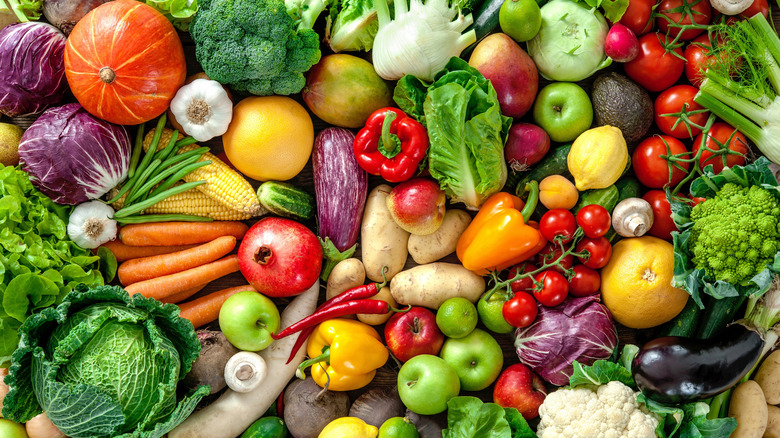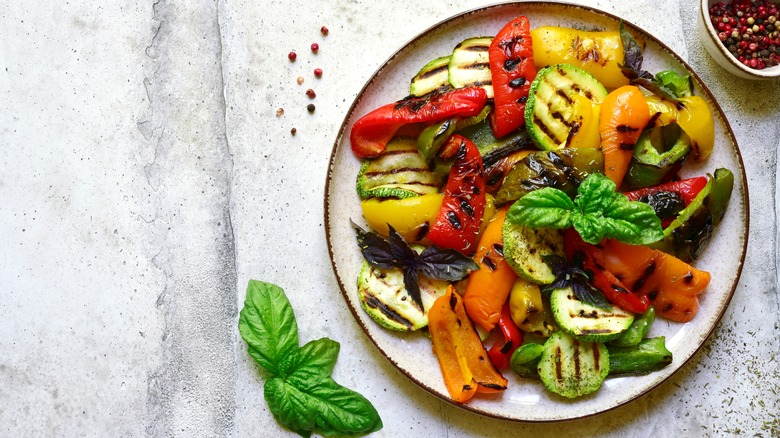Why You Need To Salt Vegetables Before Roasting
There is nothing in the world of food as unsatisfying as bland or soggy vegetables. However, besides being highly nutritious, opting for more vegetables might help save the plant. According to U.S. News, there is a growing push for the general public to eat less meat and more vegetables to fight climate change. If swapping out a chicken breast for broccoli florets sounds like torture to you, here's an easy tip that just might change your mind.
Wired recommends pre-salting your vegetables the next time you start preparing them for the oven, grill, or deep fryer. The transformative powers of salt in cooking are already well documented, but writer Joe Ray wants home chefs to go a step further. The method that he recommends is closer to a dry brine than anything else. He says that starting your meal preparation by chopping up your vegetables, salting them, and then setting them aside can help elevate the flavor of almost any dish.
The importance of pre-salting vegetables
Wired reports that pre-salting vegetables in this manner is nothing new. Ray spoke to chef and cookbook author Preeti Mistry about the technique. They noted that it's mostly frowned upon because it defies the "European Standard" of bright green, al dente vegetables. The heavy pre-salting breaks down some of the vegetable's fibers which changes the texture, but giving the salt more time to soak into the vegetables allows it to enhance the natural flavors without tasting overly-salty.
Not every vegetable is going to see the same benefits of this extra salting (via Business Insider). America's Test Kitchen recommends making the extra effort for watery vegetables that tend to come out soggy and bland because of their high moisture content. A quick sprinkle of those tiny white crystals and a little bit of rest will draw that moisture out of most vegetables to improve their texture and let them taste more like themselves. It can also give a crispier final product by reducing the amount of moisture in the oven when roasting them. A dryer heat will promote a Maillard reaction, and create the crispiest, most flavorful vegetables possible. It's the same reason you should avoid overcrowding vegetables on your baking sheet, and let that excess moisture evaporate without steaming everything on the tray (via The Kitchn).

